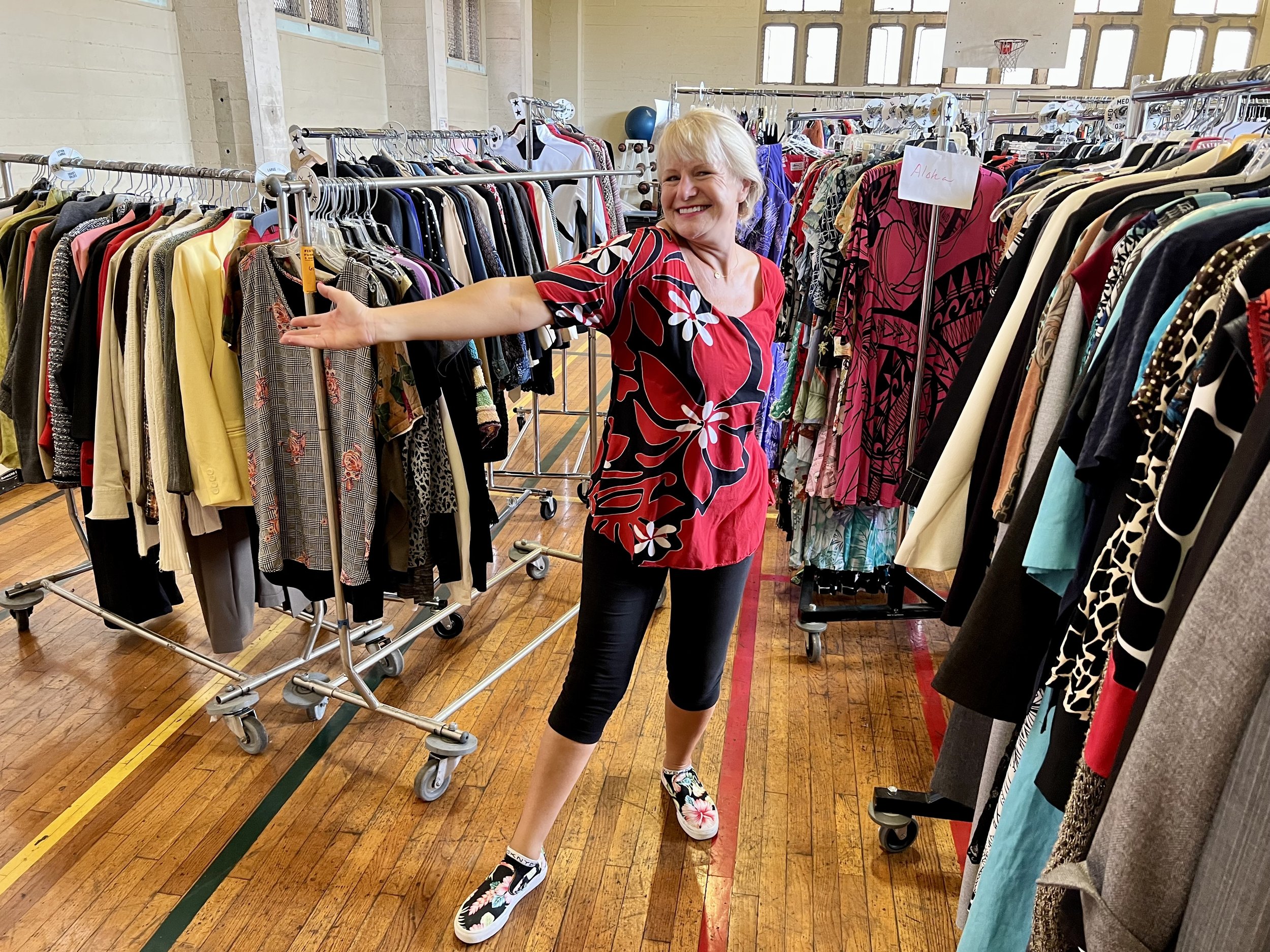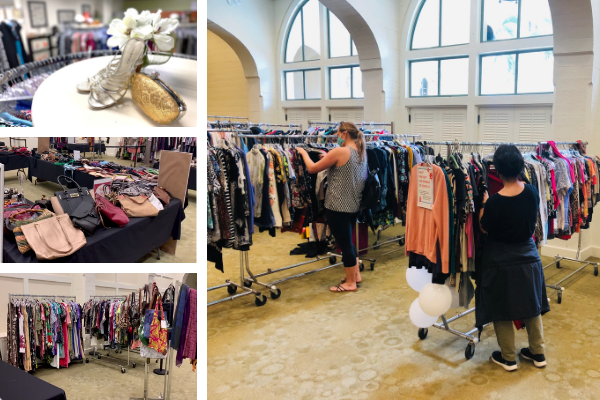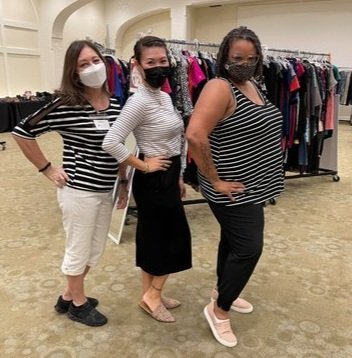The fashion industry is experiencing a revolution. In the last few years, the popularity of thrift shops has skyrocketed, so much so that in 2021, industry analysts projected that the secondhand fashion market will be double the size of the fast fashion market by 2030.
The renewed interest in thrift clothing is largely consumer-driven, a trend that marks a distinct departure from the usual top-down hierarchy of the fashion industry. Besides being affordable, thrift shopping has many other benefits, such as promoting environmental sustainability and providing a unique selection of pieces.
YWCA Oahu’s programs, Dress for Success Honolulu and Shop YWCA both embrace thrifting and magnify the positive impact it can have on the community. All of the proceeds from Shop YWCA and DFS Honolulu’s Monthly Preloved Clothing Sale go toward funding YWCA Oahu’s programs aimed at promoting women’s economic advancement.
Benefits of Thrift Shopping
Benefit Clothing Sale items are chic and affordable.
Benefit #1: Thrift Stores Are Cheaper
One of the biggest benefits of thrift shopping is that in general, you can count on spending much less money than you would on new clothes, making thrifting a more economical option. This is particularly appealing for underprivileged people, or those who are still dealing with the financial fallout of the COVID-19 pandemic. And as any avid thrifter will tell you, spending less doesn’t necessarily mean sacrificing quality—thrift culture is full of stories of people who have found designer items at a fraction of their normal price.
Manuheali‘i top found at our sale.
Benefit #2: You’re More Likely To Find Unique Items
Thrift shopping is often compared to a treasure hunt: it’s always an adventure, and you never know what you’re going to find. For people who are looking to cultivate a style that stands out, thrift shops represent a golden opportunity. Since most of the clothing at thrift shops are secondhand or vintage items that are no longer being produced, your chances of running into someone with the same outfit is virtually nonexistent. Plus, unlike online retail clothing stores, you’ll actually get to try things on to ensure a good fit!
A Dress for Success Honolulu volunteer providing customer service with sale jewelry.
Benefit #3: You’ll Be Supporting Local Businesses
As opposed to department stores or fast fashion chains, brick-and-mortar thrift stores are more likely to be locally owned and operated, and many of them are nonprofits whose proceeds are put straight back into helping the community. By making the decision to spend your money there instead of elsewhere, you’re supporting local business owners and potentially contributing to a good cause. Not to mention that the shopping experience is often better at local businesses, where the employees are invested in their job and seeing the business succeed.
Interested in shopping preloved fashion?
Visit Shop YWCA to shop online or come to DFS Honolulu’s monthly Preloved Clothing Sale held at YWCA Laniākea in downtown Honolulu.
YWCA O‘ahu is on a mission to empower women, promote peace, and eliminate racism. As one of over 300 nationwide communities, YWCA O‘ahu is committed to creating opportunities for women and girls. Programs such as Dress for Success, the MBDA Enterprising Women of Color Business Center, and our community-based furlough program are designed to give women the resources, expertise, and support they need to be able to thrive and make a difference. If you or someone you know could benefit from our services, contact us today or consider donating to support our work!












